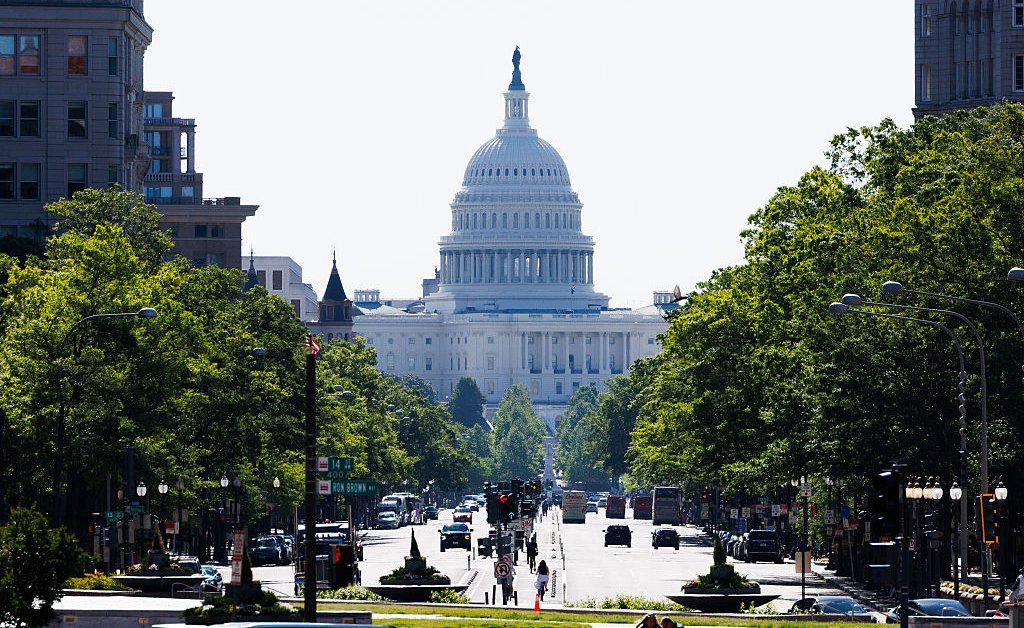Climate Change's Threat To Fetal Development And Maternal Wellbeing

Welcome to your ultimate source for breaking news, trending updates, and in-depth stories from around the world. Whether it's politics, technology, entertainment, sports, or lifestyle, we bring you real-time updates that keep you informed and ahead of the curve.
Our team works tirelessly to ensure you never miss a moment. From the latest developments in global events to the most talked-about topics on social media, our news platform is designed to deliver accurate and timely information, all in one place.
Stay in the know and join thousands of readers who trust us for reliable, up-to-date content. Explore our expertly curated articles and dive deeper into the stories that matter to you. Visit Best Website now and be part of the conversation. Don't miss out on the headlines that shape our world!
Table of Contents
Climate Change's Growing Threat: A Danger to Fetal Development and Maternal Wellbeing
Climate change is no longer a distant threat; its impacts are being felt globally, and a particularly alarming consequence is its growing effect on maternal and fetal health. Rising temperatures, extreme weather events, and air pollution – all exacerbated by climate change – are increasingly jeopardizing pregnancies and the wellbeing of both mothers and their unborn children. This isn't just a future concern; it's a present-day crisis demanding immediate attention.
The Heat is On: Rising Temperatures and Pregnancy Complications
Extreme heat poses significant risks during pregnancy. Studies have linked higher temperatures to increased rates of preterm birth, low birth weight, and birth defects. The human body struggles to regulate temperature during pregnancy, and prolonged exposure to heat stress can overwhelm this delicate balance. This is particularly concerning in regions already experiencing intense heat waves, which are becoming more frequent and severe due to climate change. These effects disproportionately impact vulnerable populations with limited access to cooling resources.
Air Pollution: An Invisible Threat to Fetal Development
Air pollution, another significant consequence of climate change, is a silent killer impacting fetal development. Exposure to pollutants like particulate matter and ozone can lead to reduced fetal growth, premature birth, and increased risks of respiratory problems in newborns. Pregnant women are particularly vulnerable because their respiratory systems are already working harder, and pollutants can easily cross the placental barrier, directly affecting the fetus. [Link to a reputable study on air pollution and pregnancy].
Extreme Weather Events: Disrupting Healthcare and Increasing Stress
Climate change is intensifying extreme weather events like hurricanes, floods, and wildfires. These events can disrupt access to healthcare, forcing pregnant women to endure dangerous journeys to reach medical facilities. The stress associated with these events can also have a negative impact on both maternal and fetal health. Displacement, loss of livelihoods, and trauma associated with extreme weather are further exacerbating health risks.
Mental Health Impacts: The Unspoken Toll
The anxiety and stress associated with climate change are also taking a toll on pregnant women's mental health. The fear of future climate-related disasters, coupled with the added pressures of pregnancy, can lead to depression, anxiety, and post-traumatic stress disorder (PTSD), potentially impacting fetal development and the mother's ability to care for her child. [Link to a resource on mental health support during pregnancy].
What Can We Do? Addressing the Climate-Health Crisis
Addressing this urgent issue requires a multi-pronged approach:
- Mitigation: Reducing greenhouse gas emissions through transitioning to renewable energy, improving energy efficiency, and promoting sustainable transportation are crucial for preventing further climate change.
- Adaptation: Investing in climate-resilient healthcare infrastructure, ensuring access to cooling resources in vulnerable communities, and developing early warning systems for extreme weather events are vital for protecting pregnant women and their babies.
- Research: Further research is needed to better understand the specific impacts of climate change on maternal and fetal health, and to develop effective interventions.
- Public Awareness: Raising public awareness about the link between climate change and maternal/fetal health is crucial for driving policy changes and individual actions.
Climate change is not just an environmental problem; it is a public health crisis with profound implications for maternal and fetal wellbeing. By acknowledging the severity of the threat and taking decisive action, we can protect the health of future generations. This requires collaborative efforts from governments, healthcare professionals, researchers, and individuals to build a healthier, more sustainable future for all.
Call to Action: Learn more about the impacts of climate change on your community and advocate for policies that protect maternal and child health. [Link to a relevant advocacy organization].

Thank you for visiting our website, your trusted source for the latest updates and in-depth coverage on Climate Change's Threat To Fetal Development And Maternal Wellbeing. We're committed to keeping you informed with timely and accurate information to meet your curiosity and needs.
If you have any questions, suggestions, or feedback, we'd love to hear from you. Your insights are valuable to us and help us improve to serve you better. Feel free to reach out through our contact page.
Don't forget to bookmark our website and check back regularly for the latest headlines and trending topics. See you next time, and thank you for being part of our growing community!
Featured Posts
-
 Lgbtq Rights Take Center Stage World Pride Meets Trumps Washington
May 19, 2025
Lgbtq Rights Take Center Stage World Pride Meets Trumps Washington
May 19, 2025 -
 Trump Plans Monday Call With Putin To Halt Ukraine Conflict
May 19, 2025
Trump Plans Monday Call With Putin To Halt Ukraine Conflict
May 19, 2025 -
 Will Clean Energy Taxes Boost Or Hurt The American Economy
May 19, 2025
Will Clean Energy Taxes Boost Or Hurt The American Economy
May 19, 2025 -
 High Profile Players Rocky Start At Pga Tournament
May 19, 2025
High Profile Players Rocky Start At Pga Tournament
May 19, 2025 -
 Scottie Scheffler Steals The Show 2025 Pga Championship Moving Day
May 19, 2025
Scottie Scheffler Steals The Show 2025 Pga Championship Moving Day
May 19, 2025
